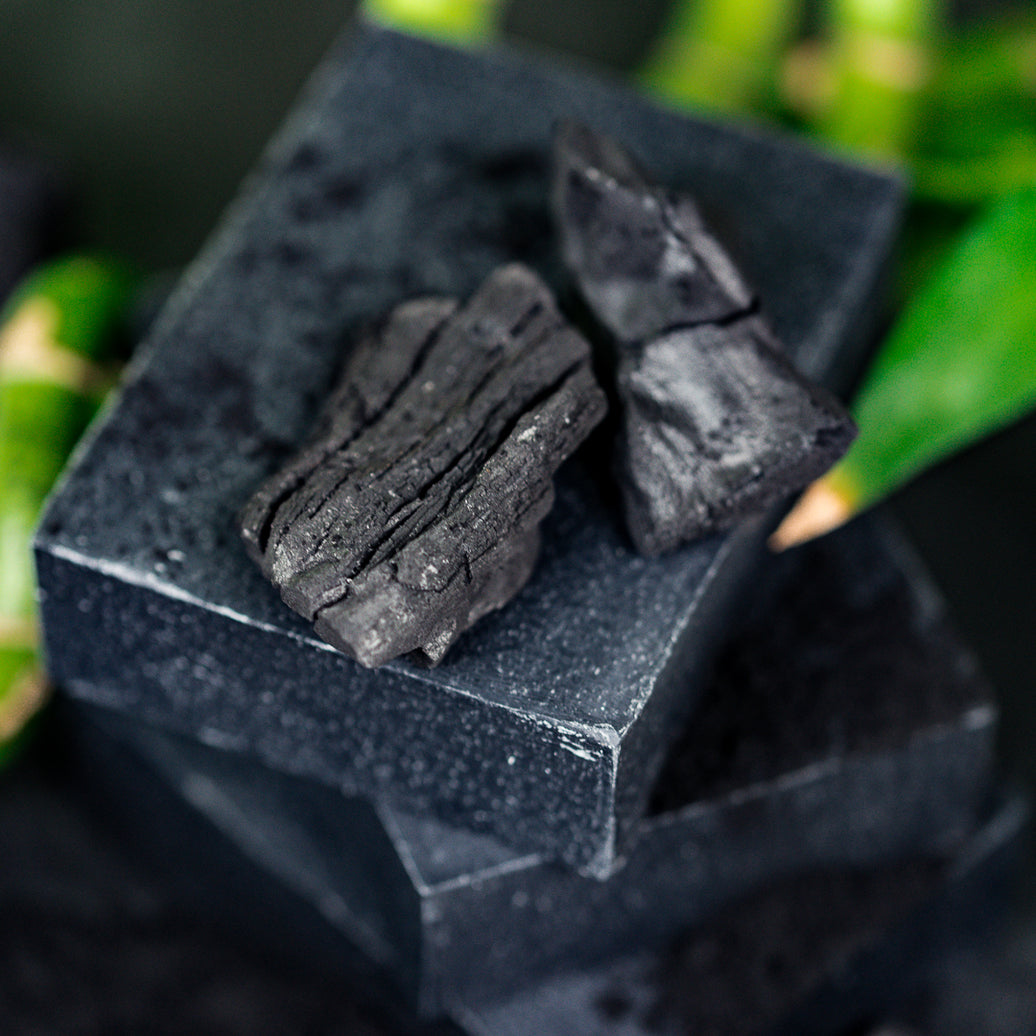
Natural Soap: Bamboo Charcoal
- Out Of Stock
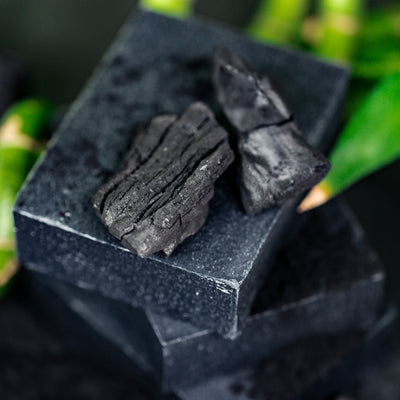

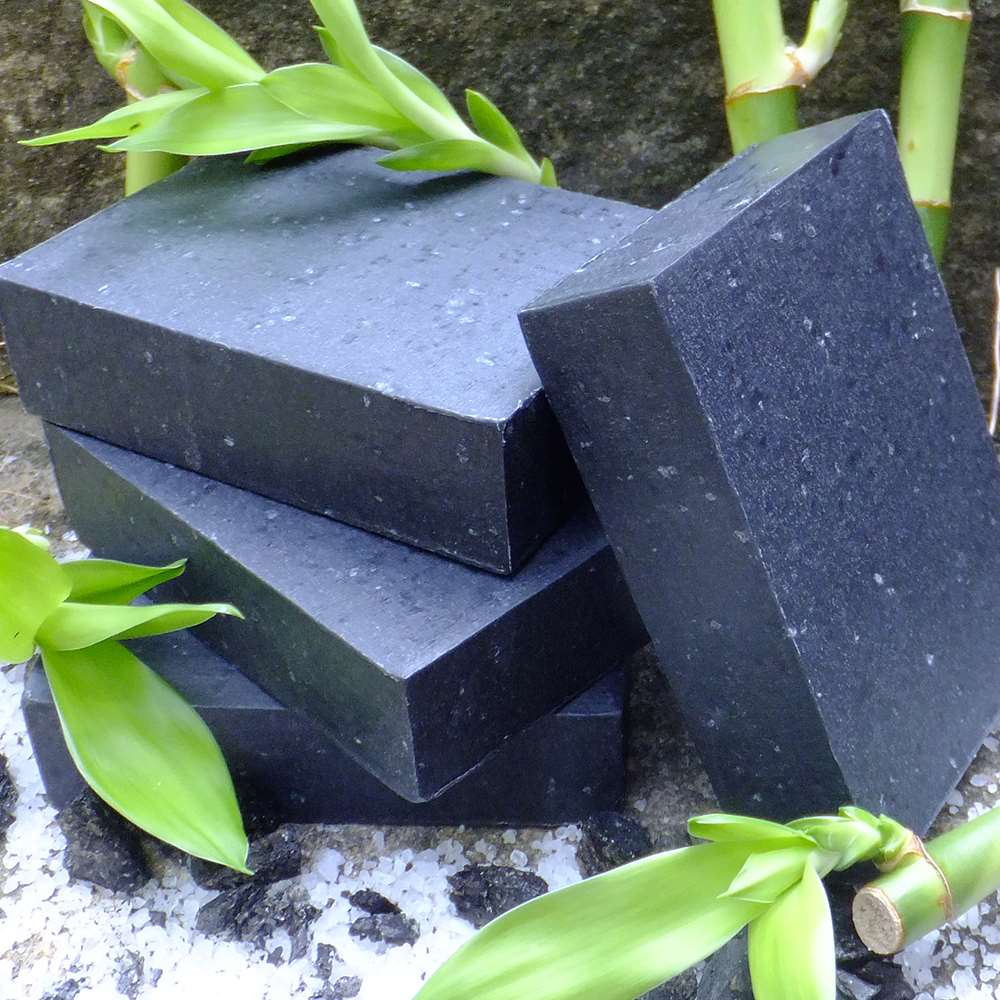
Skin-refreshing ingredients offer a soothing yet deep cleanse that leaves skin feeling soft and smooth. Activated charcoal, tea tree oil, sea salt, and bentonite clay help cleanse skin while cocoa butter adds an emollient layer that locks in natural moisture to soothe and hydrate skin.





Good For: Normal to Oily Skin Skin
A great deep cleansing natural body and complexion soap that combines bamboo charcoal, sea salt, bentonite clay, and tea tree oil to clear and brighten your complexion.
This unique cleansing bar can be used on the face to cleanse and clarify the skin for a smoother, more radiant complexion. It can be used as a full body cleanser to clarifying skin anywhere on the body.
Activated bamboo charcoal has become a key ingredient in many cleansing products. Working like a magnet, it pulls (adsorbs) dirt and debris from deep inside pores. When charcoal is added to soap, the soap binds with these impurities and they are easily rinsed away leaving skin clean, soft, and smooth revealing a brighter and more radiant complexion. By refining the skin, activated charcoal helps to enhance skin texture leaving you with a fresher, more youthful-looking complexion.
We believe in simple, effective cleansing for your complexion and that is accomplished with natural soap and water. The purpose of soap is to combine with oil and dirt on the body, which allows water to wash it away. The method you use to cleanse your skin, especially your face, is really personal preference. We thought we would share just a few examples.

Hand Lathering is usually the suggested method for cleansing delicate facial skin.
Washcloth Washers: A washcloth can help remove dead cells and invigorate your skin. A gentle massage with a soft washcloth can help keep facial skin smooth and clean.

If you are using a washcloth:
Never share washcloths or other accessories and replace or clean them often.
A Few Other Pointers:

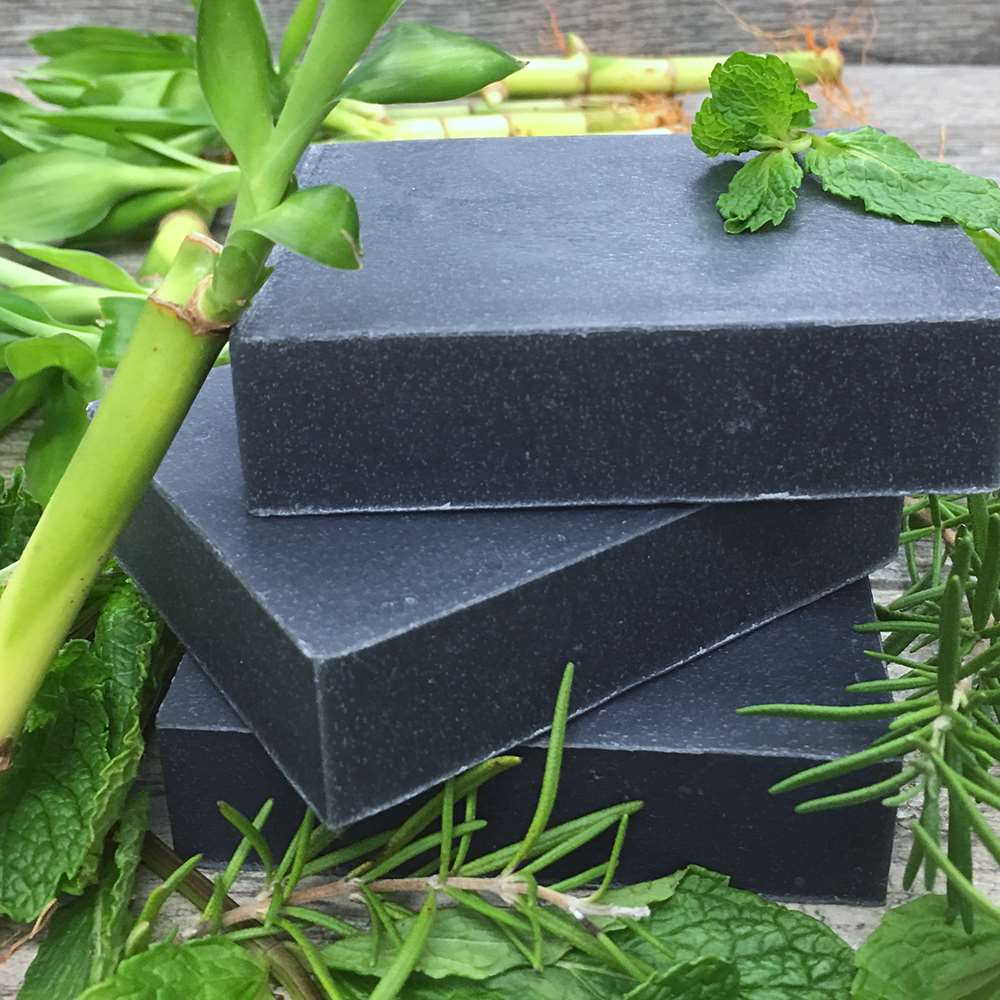
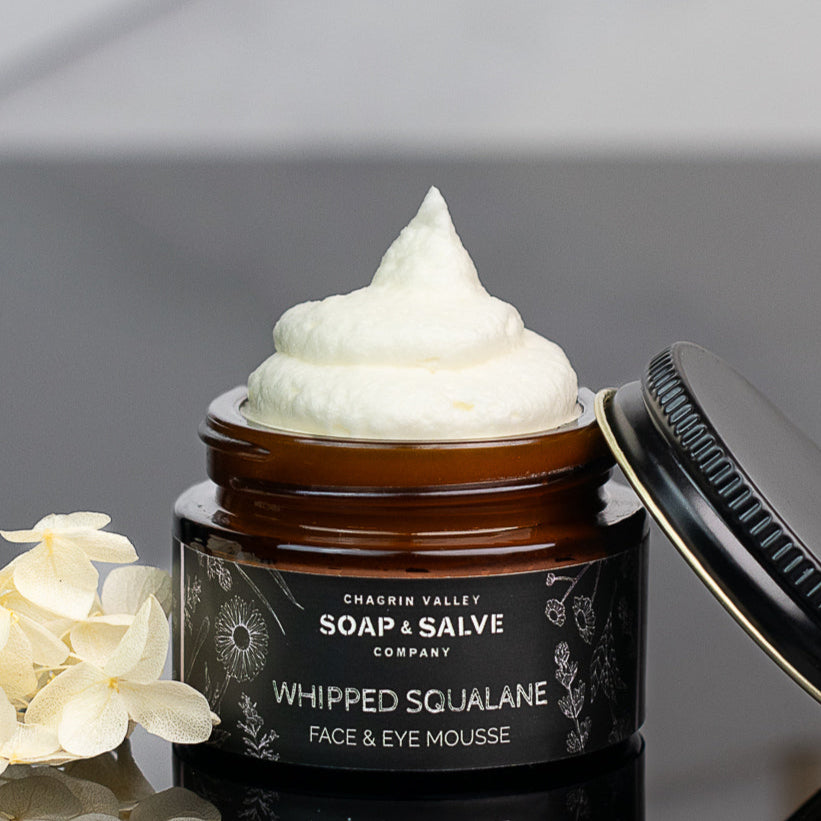
Total price: $43.40
Create Your Own Bundle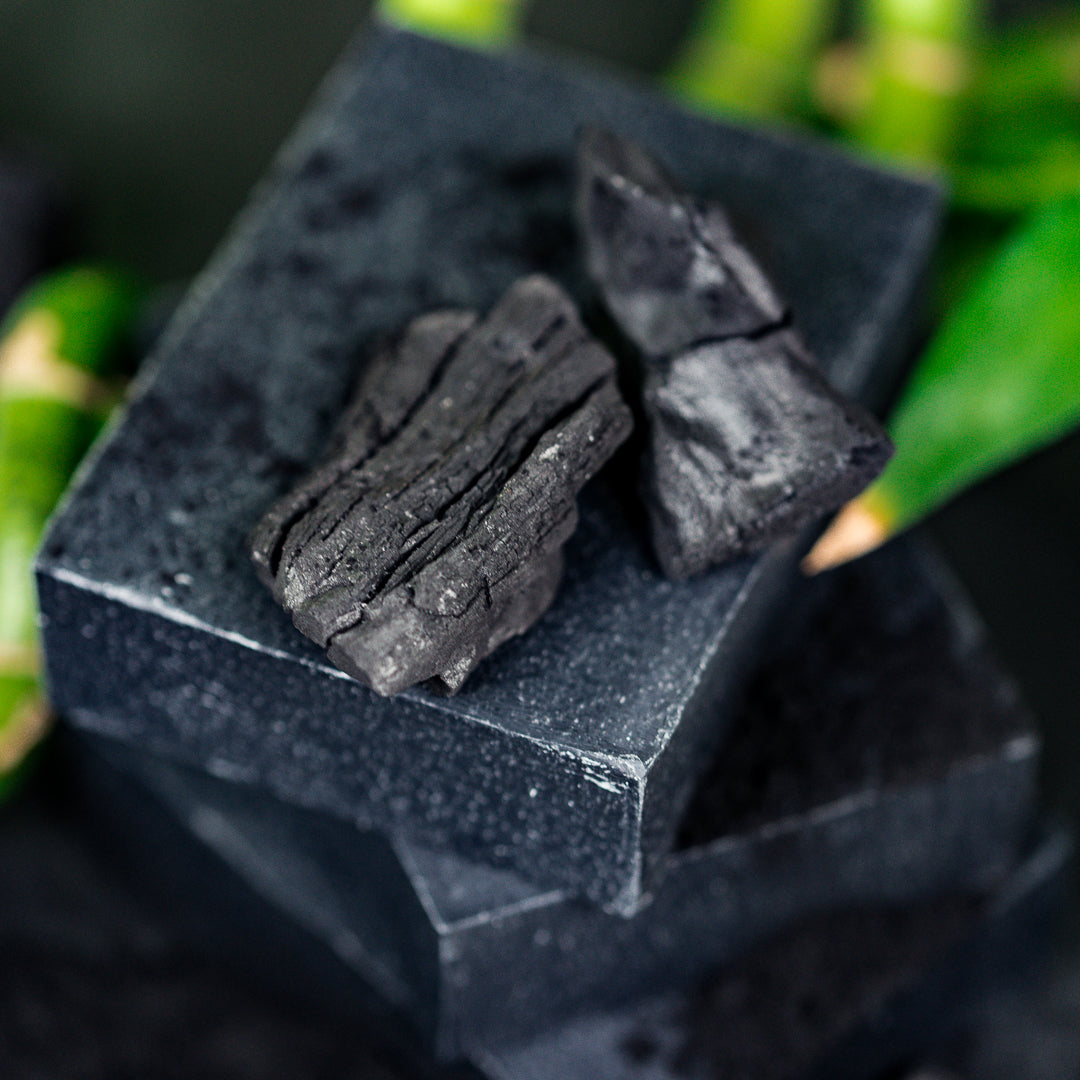
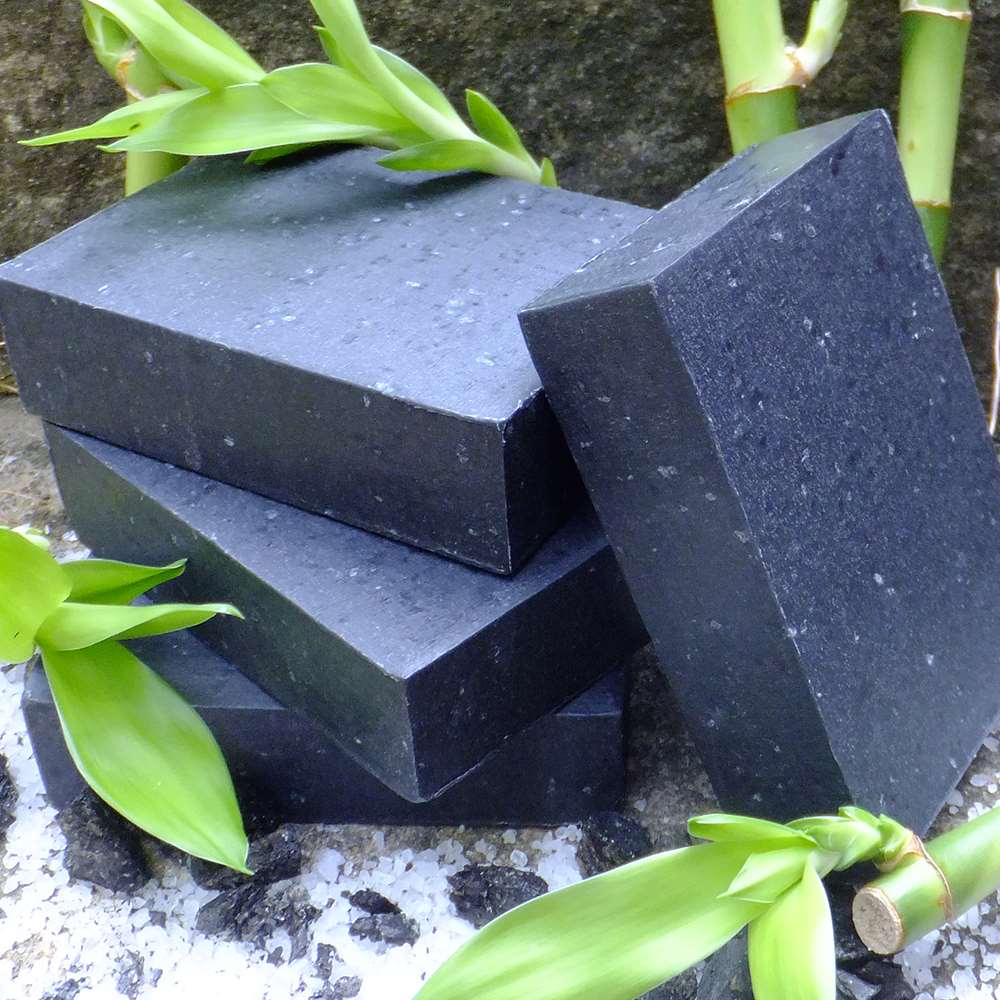
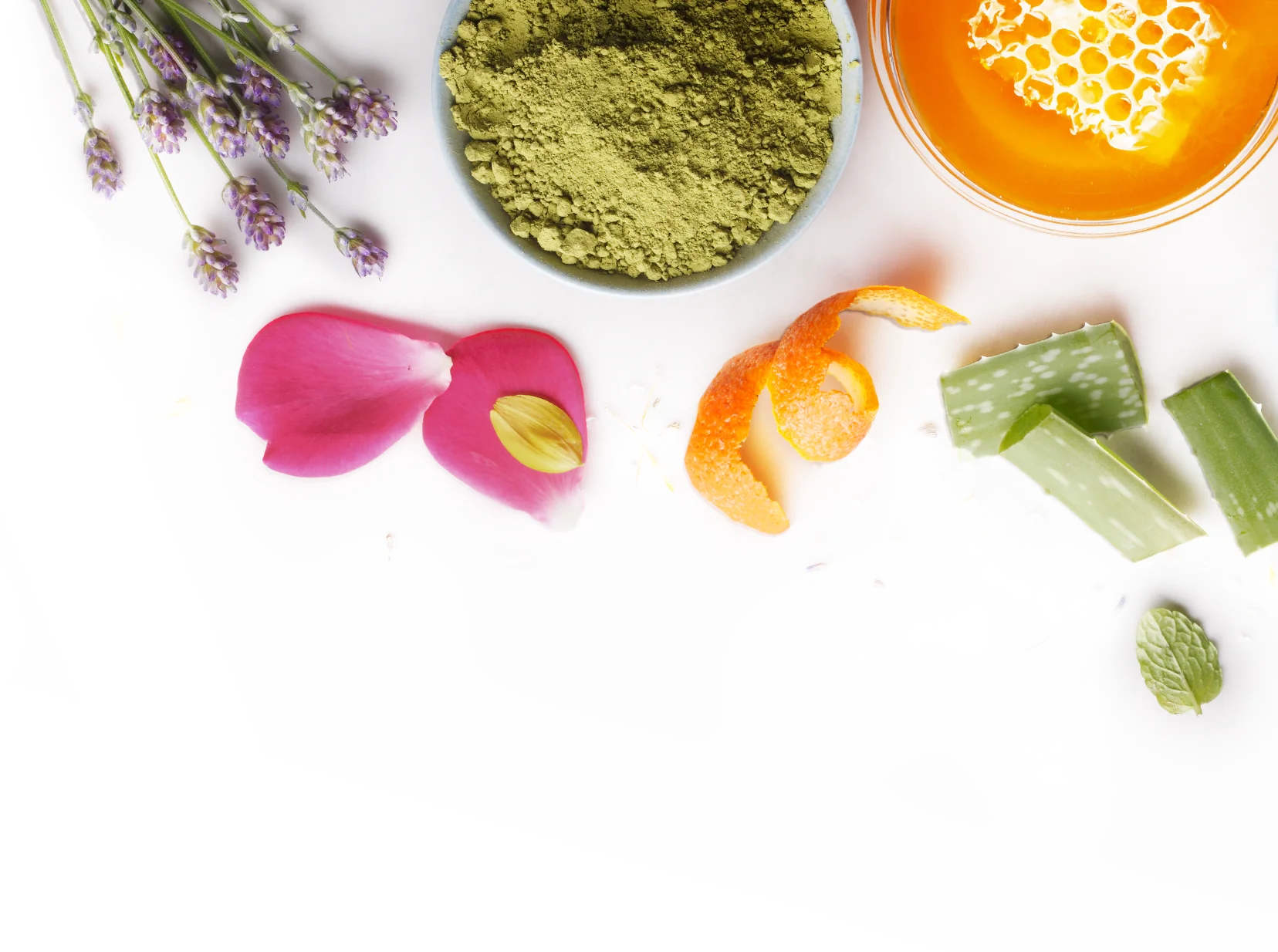
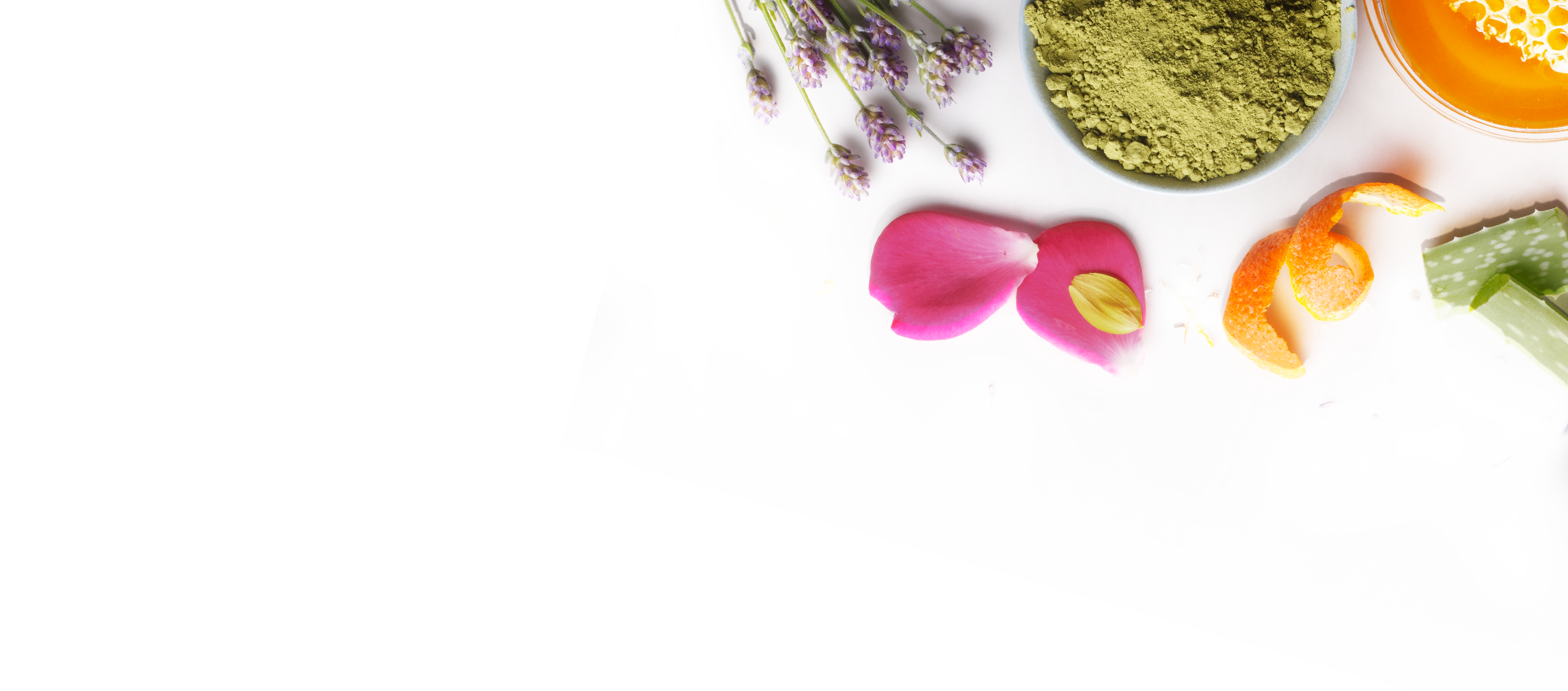
The goal is simple: to Harness the Power & Simplicity of Nature® to cleanse, soothe, heal, and protect your skin and hair!
Our unique formulas rely on moisturizing oils and butters, healing botanicals, and pure essential oils. We choose every ingredient with one end-result in mind….the BEST possible natural skin care for YOU!
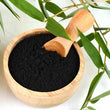
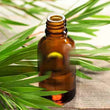
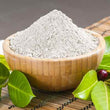
*Ingredient is Fair Trade Certified
^Used in the saponification process to turn oil into soap and glycerin. None remains in the finished product.
Please Note: We don't skimp on the charcoal. The deep color may cause staining on light colored washcloths. Stains should disappear after laundering, but we make no promises.
If you think about it, your skin type is not even the same for all of the areas of your body.
The skin on your face is different from the skin on your hands, which is different from the skin on your back which is different from the skin on your feet ...etc.
Although your skin type is determined by genetics, it will also be affected by other factors and can change with time.
Understanding your skin type is a good starting point before trying or switching to natural products.
There are typically five types of healthy skin: normal, dry, oily, combination, and sensitive.
NORMAL SKIN
This skin is balanced, neither too dry nor too oily. It has regular texture, no imperfections and a clean, soft appearance, and does not need special care.
OILY SKIN
Oily skin is the result of excessive secretions of sebum, an oily secretion of the sebaceous glands. Oily skin tends to attract more dirt and dust than dry skin and may be prone to blackheads, acne, and excessive shine. It is frequent in adolescents and often seen with acne or blemish-prone skin.
DRY SKIN
For some people dry skin is caused by external factors such as the weather, low air humidity, sun, or hot showers, and it is often temporary.
However, for others it may be a lifelong condition. Dry skin is a result of a decrease in natural oil production which often results in skin that is flaky and has a rough appearance. Dry, cracked skin is often prone to skin disorders, such as eczema.
 SENSITIVE SKIN
SENSITIVE SKIN
Truly sensitive skin easily reacts to external stimuli. The skin is often fragile, thin or fine-textured, dry, and prone to allergic reactions.
Sensitive skin often feels uncomfortable, tight, red or itchy. It is a delicate skin that needs a lot of TLC.
COMBINATION SKIN
Combination skin is just what is sounds like, it has characteristics of both dry and oily skin. The area with more oil is usually the T- zone (forehead, nose, and chin), while the skin on the cheeks is normal or dry.
For more information on skin type and help with product recommendations for your individual needs, please read our blog, What's Your Skin Type?
 Saying a soap is "handmade" says nothing about quality of the ingredients or the knowledge and skill of the soapmaker!
Saying a soap is "handmade" says nothing about quality of the ingredients or the knowledge and skill of the soapmaker!
Chagrin Valley is not just another soap and skincare company. We are committed to healthy skin, healthy people and a healthy planet.
We are a USDA Certified Organic Company specializing in luxurious, organic, handmade natural soaps and shampoo bars rich in natural glycerin for healthier skin and hair.
It's all about the ingredients! Inspired by our love of nature, we use organic herbs, seeds, flowers, vegetables, fragrant spices, fruits, pure essential oils and purifying clays for their exceptional skincare benefits and to provide natural color, aromatherapy, texture, or gentle exfoliation. Nothing artificial, nothing synthetic, no GMO’s, just natural wholesome ingredients.
Our soap making process uses only natural and organic ingredients. Why add artificial ingredients to a handmade product?

"Are All Handmade Soaps The Same?"
"12 Reasons to Use Natural Soap"
USDA Organic Certification was created for food production (not the personal care industry) and as a result is based on organic farming and agriculture standards.
The list of allowable non-agricultural ingredients (like clay, salts, mud, etc) is based on raw materials used in farming. Agricultural ingredients have a biological origin and are made up of carbon. Non-agricultural ingredients have a non-biological origin.
For example, ingredients that come from plants and animals are agricultural, whereas salts, clays, baking soda, pumice, and water are non-agricultural.
Since clays like kaolin and bentonite have farming/agricultural uses, they appear on the list. Unfortunately, ingredients like Pumice, Dead Sea Mud, and Bamboo Charcoal are not used in farming or food production and thus do not appear on the list. Sometimes an ingredient, such as Magnesium Hydroxide, appears on the list but can only be under certain circumstances. Magesium hydroxide can only be used as a nutrient supplement for animals.
Products that contain these ingredients like our Sensitive Skin Deodorants, Clay Facial Masks, and Bamboo Charcoal, Loofah Pumice Foot, and Dead Sea Mud soaps, as well as our Mud & Clay and Rosemary Mint Charcoal Shampoo Bars cannot display any organic symbol or even state that they are organic.
Since we are a certified organic company, we must follow the rules of the USDA. Even though these products are made with certified organic ingredients that meet the same rigorous standards as those required for our "Organic" products, we cannot call them "organic." Sadly if you are not a USDA Certified Organic company, you can do whatever you want :-(
For more detailed information, please read our blog, "What Do All of the Organic Labels Mean?"
 How long a natural soap bar will last depends on:
How long a natural soap bar will last depends on:
For one person showering every day, a well-drained bar should last for about one month.
Natural soaps are normally softer than commercial soaps because they retain their natural glycerin (which is removed in commercial soap production) and contain no artificial hardening chemicals, synthetic waxes or free alkali.
We also superfat our soaps (add extra oils or butters) and use "softer" oils so that Chagrin Valley natural soaps are more emollient and leave skin feeling moisturized.
Different oils impart different qualities to soap. Some add lathering qualities, some moisturizing, some hardness, and so on. Compared to other natural bars, we use a larger percentage of extra moisturizing and conditioning oils in our soaps and shampoo bars. These oils produce a bar that may not be as hard as bars with less conditioning oils.
How you use the bar will also affect its lifespan. For example, do you use a washcloth, an exfoliating accessory, or only the bar? Although exfoliating loofahs and sponges are great they will use up the soap much faster than a washcloth or the "only the bar" purists.
Our Natural Soap Will Last A Long Time With Proper Care
Cute Story: A customer called to say she loved our soaps but could not buy them anymore because they did not last as long as other soaps. A week later she called to place an order and apologize. Her husband, who would NEVER use her natural soaps before, fell in love with her new Juniper soap . . . and he showered twice a day!
To maximize the life of your soap, keep it in a well-drained soap dish so it can dry between uses.
We sell a handcrafted solid white oak soap dish. The deep ridges are perfect for keeping your all natural handcrafted soap dry between uses. White Oak is the wood used in shipbuilding.
A tip passed on by one of our customers whose kids always leave the soap in a water puddle: cut the large bars in halves. Then alternate the halves, allowing a longer drying time between uses.
NO! Adding antibacterial chemicals to soap does not keep your family safe from germs.
I understand why folks (especially those with children) are choosing products labeled “Antibacterial,” hoping to keep their family safe in the war against germs.
According to Janet Woodcock, M.D., director of the FDA’s Center for Drug Evaluation and Research (CDER).
"Consumers may think antibacterial washes are more effective at preventing the spread of germs, but we have no scientific evidence that they are any better than plain soap and water.
In fact, some data suggests that antibacterial ingredients may do more harm than good over the long-term.”
Simply washing your hands with old-fashioned natural soap and water rids your skin of most fungi, bacteria, and viruses. Soap does not kill germs, it surrounds them and carries them away.
Please read our blog: Antibacterials: More Harm Than Good!
We often receive emails from concerned customers that have read about the devastating effects that palm plantations can have on tropical forests.
At Chagrin Valley Soap we treasure our planet and its inhabitants. We know that although we play a very small part, we must always make choices that are ecologically and socially responsible.
As the global demand for palm oil continues to increase we want to be part of the global initiative that changes how that palm oil is grown.
Our Palm Oil is grown and manufactured according to standards for sustainable practices set forth by Palm Done Right.
Certified sustainable by RSPO (The Roundtable on Sustainable Palm Oil) and Palm Done Right

Our USDA organic palm oil variety carries RSPO Certification, otherwise known as Roundtable on Sustainable Palm Oil, guaranteeing the sustainability and traceability of the palm oil production throughout the supply chain.
It has RSPO-IP (Identity Preserved) certification which is one of four certification levels offered by the RSPO and carries the highest and strongest level of sustainable guarantee with traceability of each lot of palm oil back to the field of origin. With Identify Preserved sustainable palm oil, the entire batch of palm oil is from a single identifiable certified source and kept separate from all non-certified batches.

Palm Done Right presents the first fully integrated, 100 percent organic supply chain in the palm oil industry. Palm Done Right requires a fair labor certification, organic certification, Non-GMO Project Verification, and has the highest level of certification — Identity Preserved — offered by the Roundtable for Sustainable Palm Oil (RSPO).
As the global demand for palm oil continues to increase, we believe that if both manufacturers and consumers demand Certified Sustainable palm oil, producers will grow Certified Sustainable palm oil. That is the only way to really protect our rainforests.
If there is no demand for sustainable palm oil, growers will continue their cheaper unsustainable practices, because no one is paying them for a sustainable product. (If you build it, they will come!)
Please read our blog, "Will A Palm Oil Boycott Really Help?"
Yes And No!
Although handmade natural soaps usually get better with age, we recommend using our soaps within 12 months of purchase. Our scented soaps should be used within 3 months after removing them from the box.
Although the soaps will not be "spoiled" after that time, you may notice some changes as natural soap ages.
The changes in color and scent happen even more quickly in our sample size bars.
These small natural soap bars have a much greater surface area to volume ratio which allows essential oils to evaporate from the surface more quickly. However, the scent may still be there when you lather up.
I have found some ancient bars hiding in my closet that years old. The scents were gone, but the lather was incredible!
For a more detailed discussion please read our blog, "The Shelf Life, Color & Scent of an All Natural Soap."
 If you are asking the question:
If you are asking the question:Do you use lye (sodium hydroxide) to make Chagrin Valley natural soap?
The answer is -- yes, of course.
No lye -- No soap!
All REAL soap is made with lye (sodium hydroxide mixed with a liquid).
Any skin or hair cleansing product made without sodium hydroxide is not soap, it is a detergent.
Is there lye in a bar of Chagrin Valley Natural Soap or Shampoo?
The answer is "No."
When the chemical reaction of making soap, called saponification, is complete, the lye and oil molecules have combined and chemically changed into soap and glycerin.
If the soap is made properly, the lye is used up in the saponification process to turn oil into soap.
There is no lye present in the finished bars of soap or shampoo. While all real soap must be made with lye, no lye remains in our finished product after saponification (described below).
If it is real soap or contains read soap, it is made with lye!
Some commercial "soap" bars and all handmade soap bars are made with lye even though the words "sodium hydroxide" or "lye" do not appear on the labels. Does your bar of "soap" contain ingredients such as...
These words are not usually used to deceive consumers. But soap makers know that consumers are afraid of the word "lye."
At Chagrin Valley we believe that today's consumers are pretty savvy and the best practice is to educate.

"Is There Lye in Natural Soap? Won't it Harm My Skin? Information about lye and the chemistry of soap making

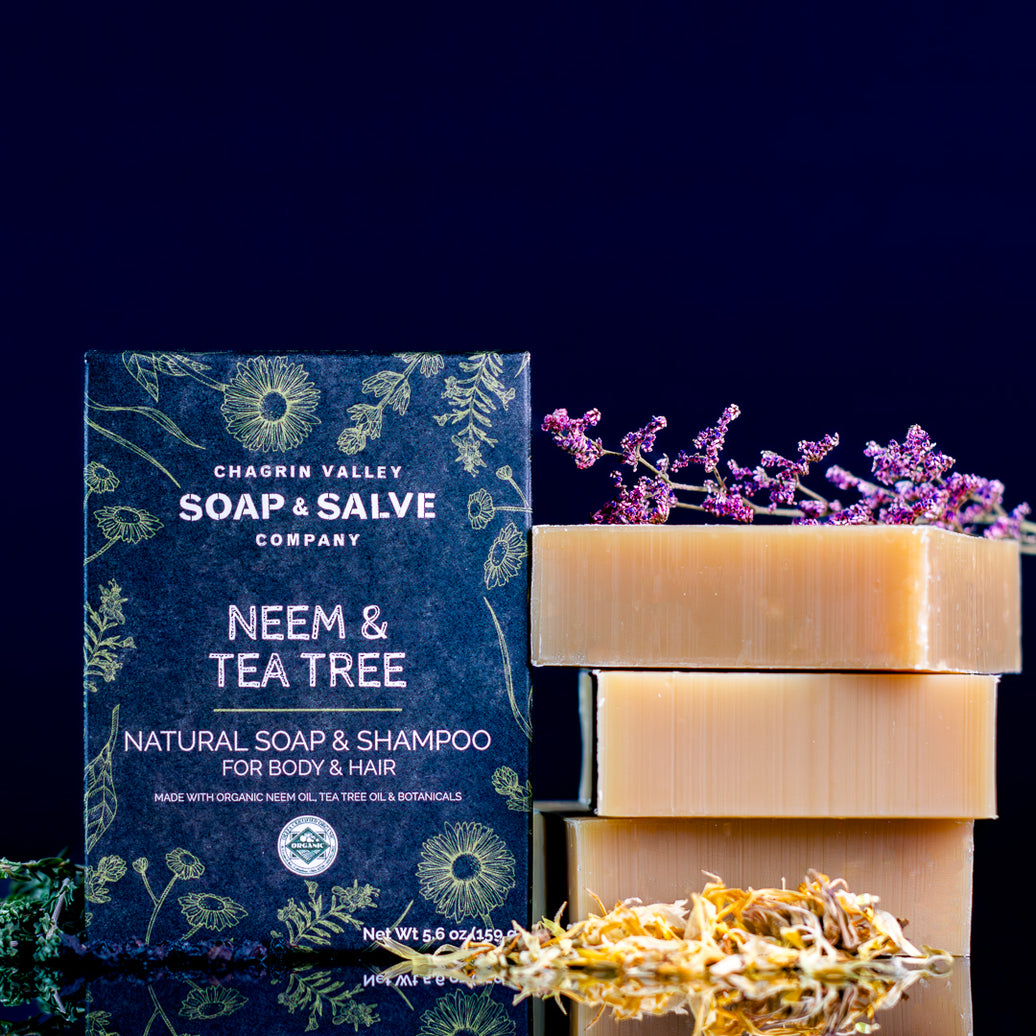
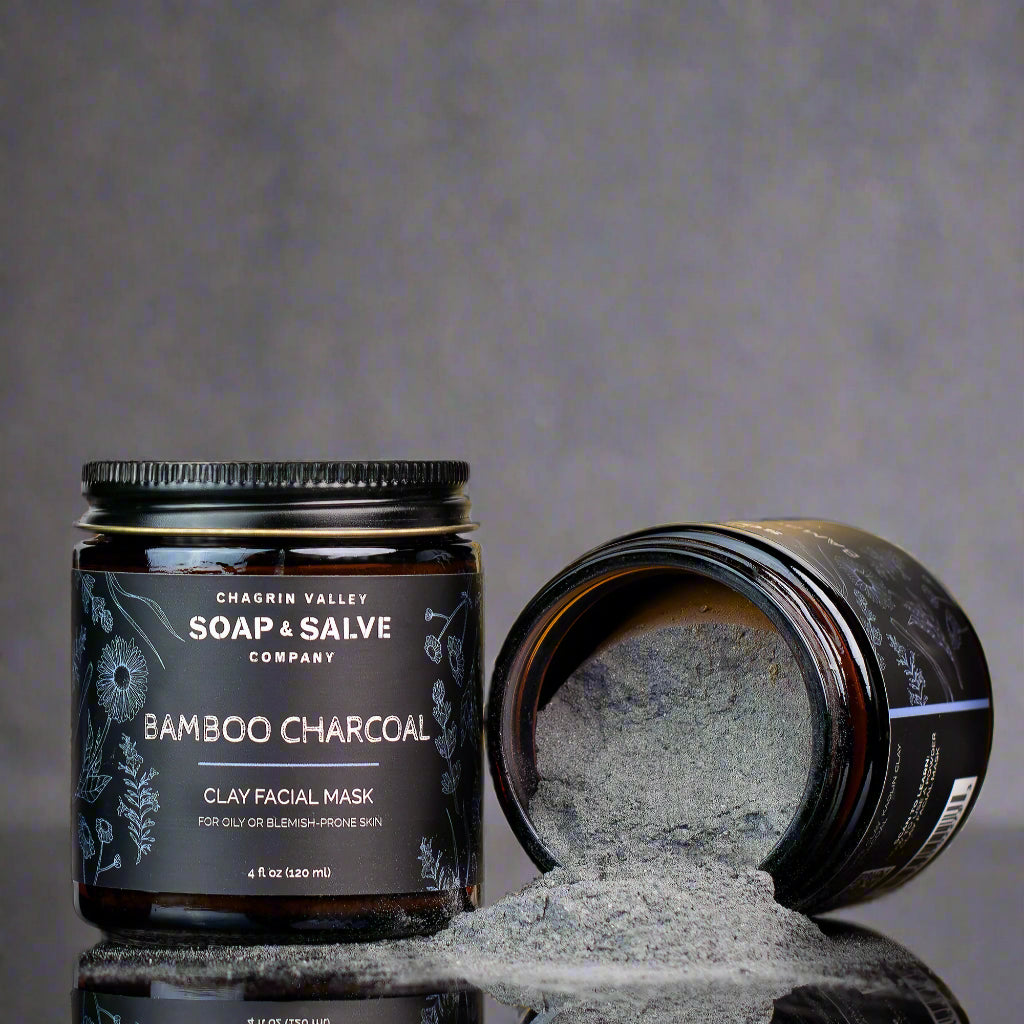
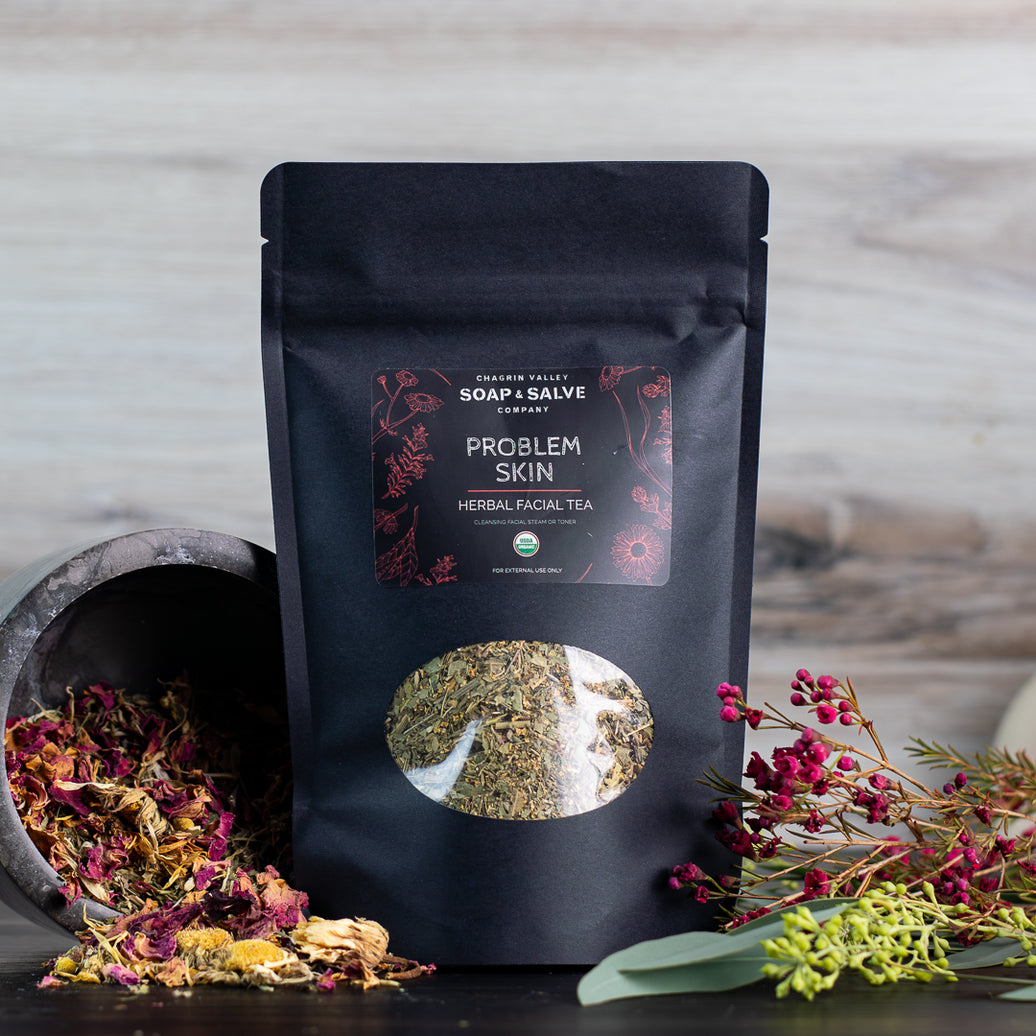
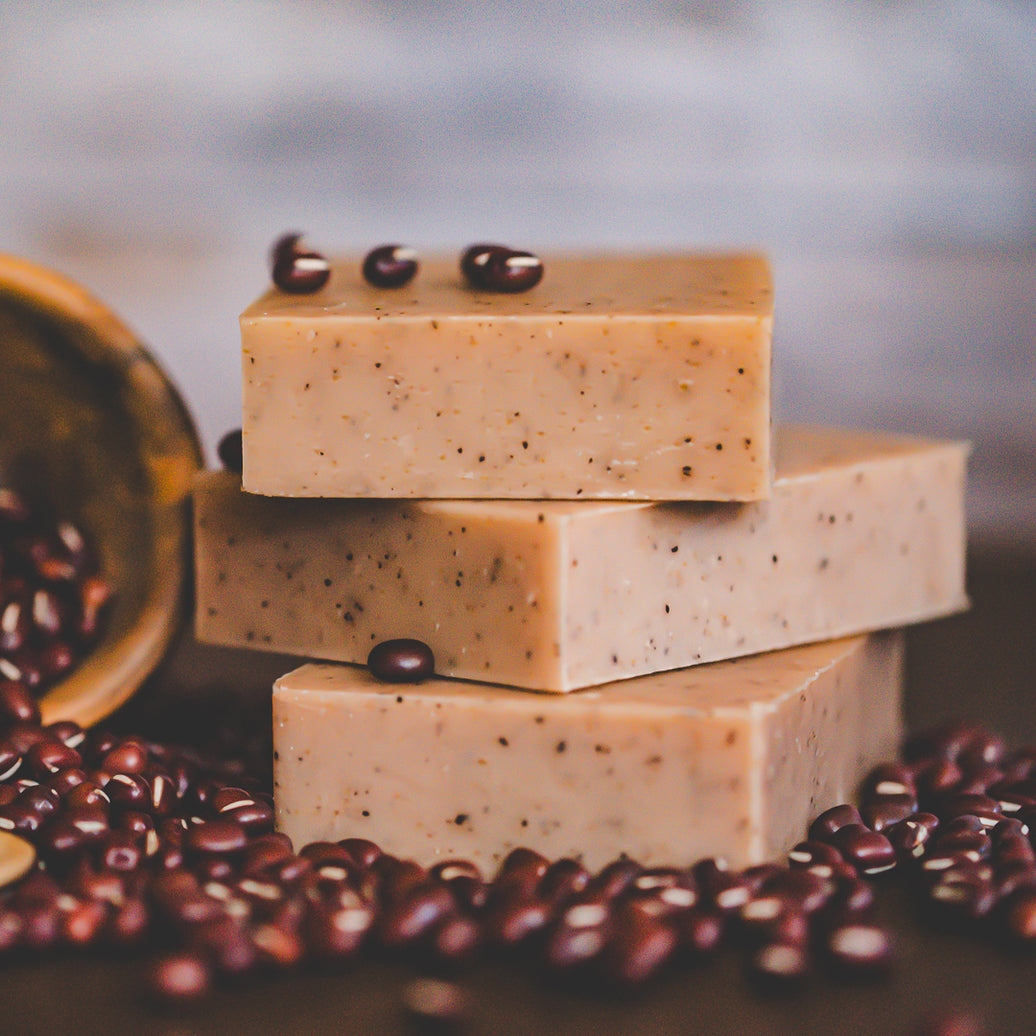
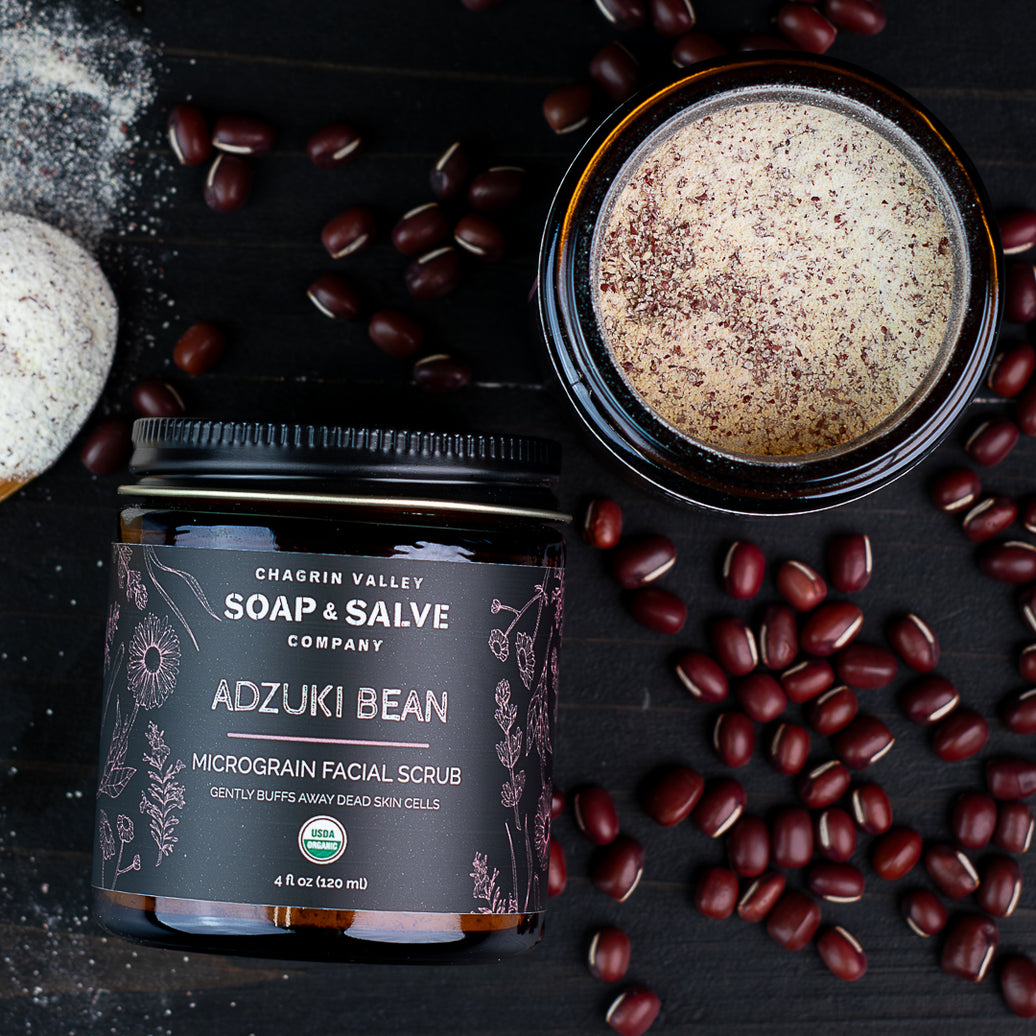
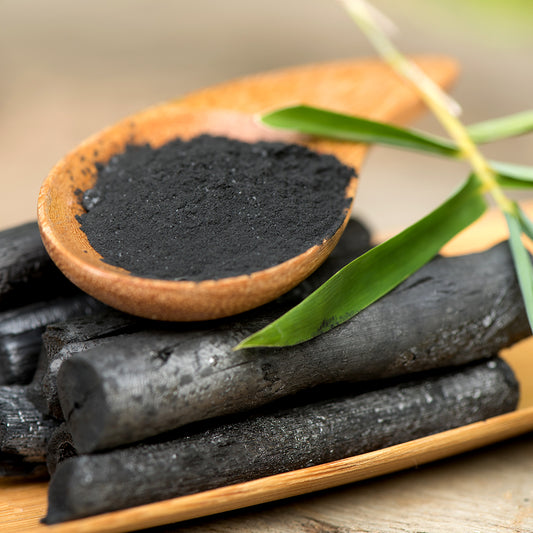
Sustainable, activated bamboo charcoal has become a key ingredient in many skincare products due to its natural ability to draw out dirt and debris from deep inside pores,
Read Post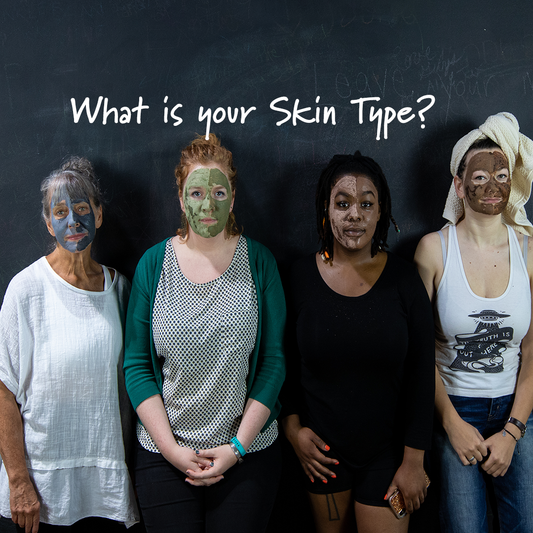
Your skin type will change throughout the different stages of your life. Read about the major characteristics of each skin type, discover how to manage your skin’s special needs, and learn two simple methods for identifying your skin type at home.
Read Post
Help Me Choose a Natural Soap: Your skin type is unique to you! We have compiled natural soap recommendations based on information gathered from friends, family, and customers. We hope this will help you make your choices based on skin care needs and sensitivities.
Read Post